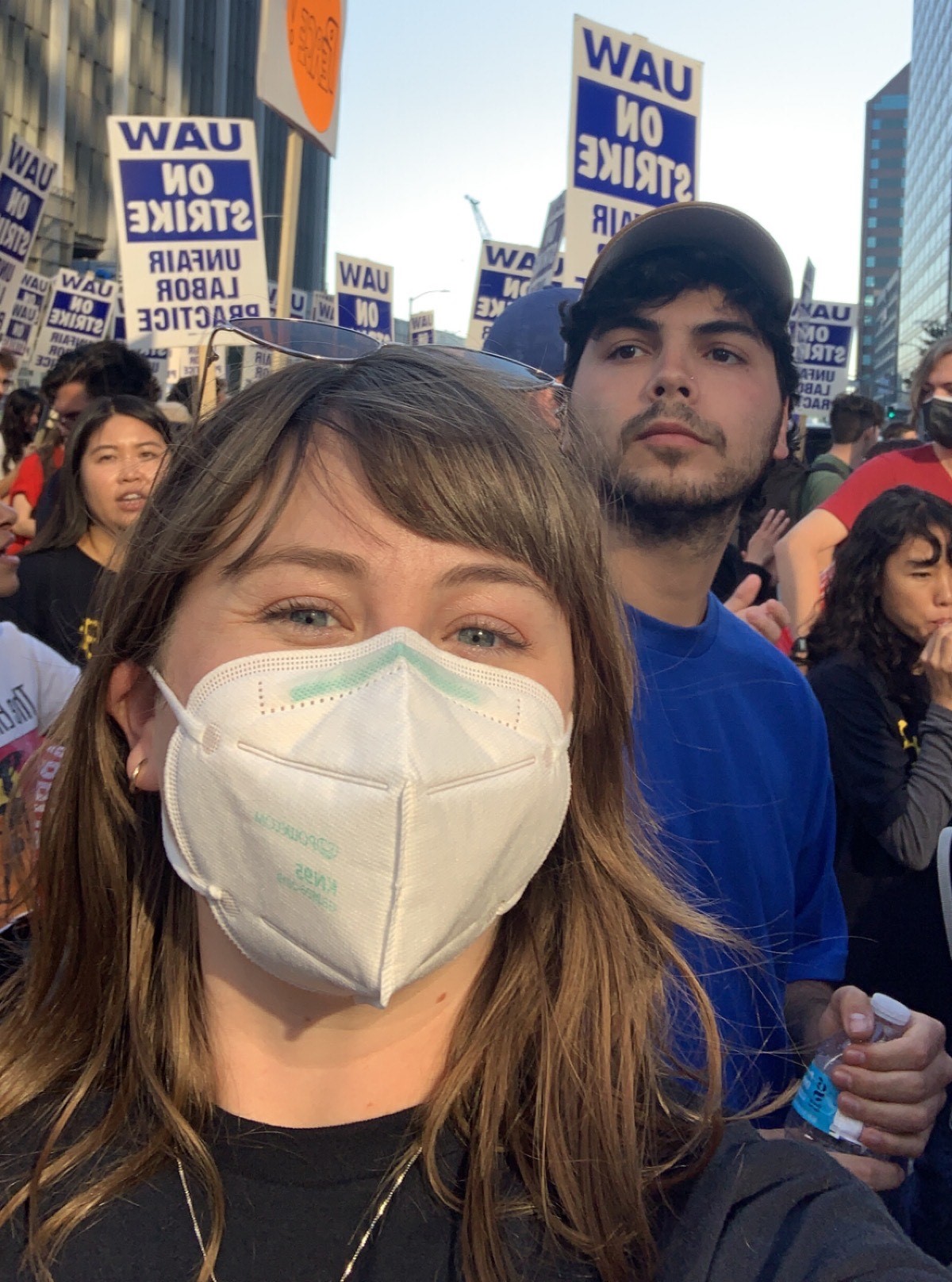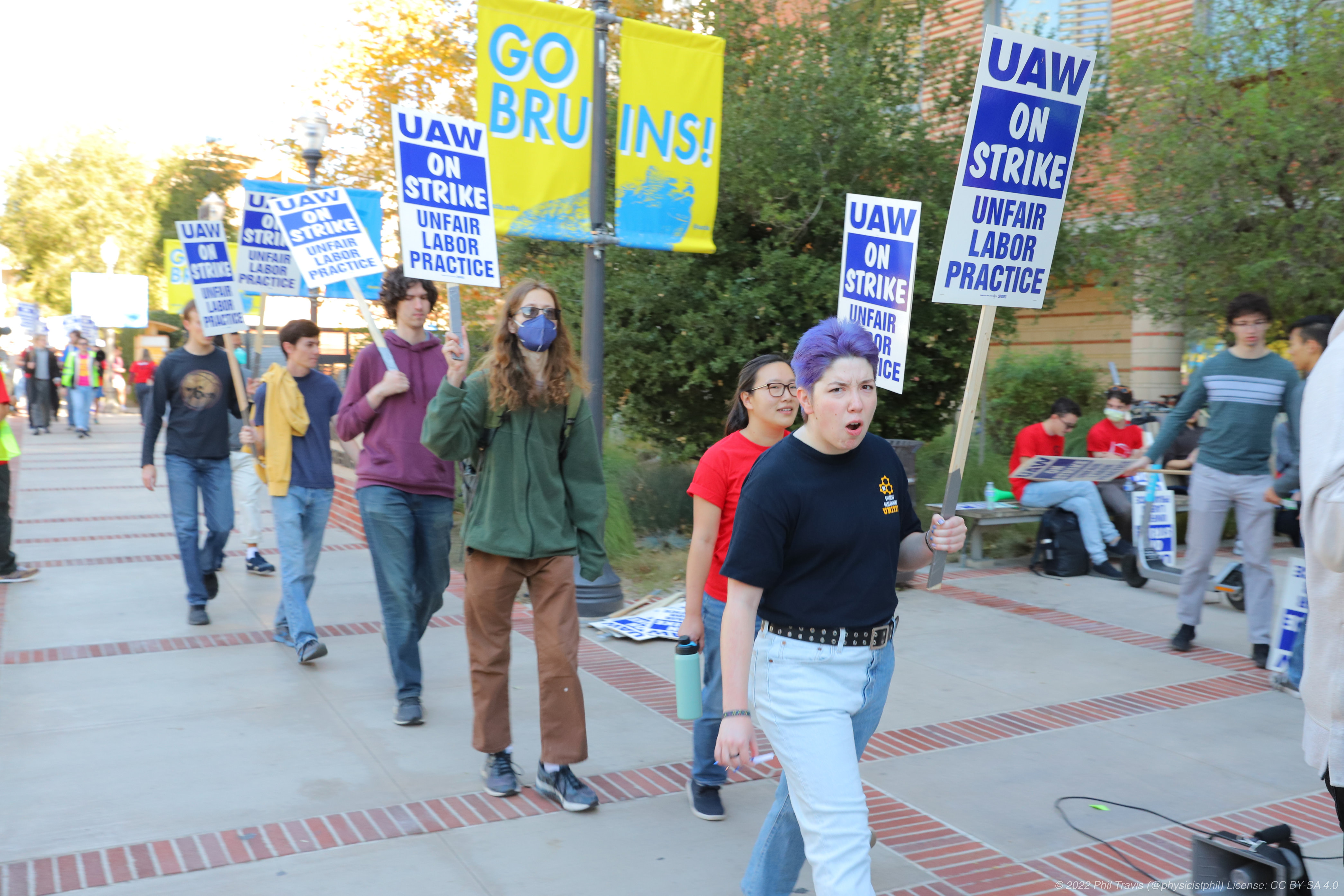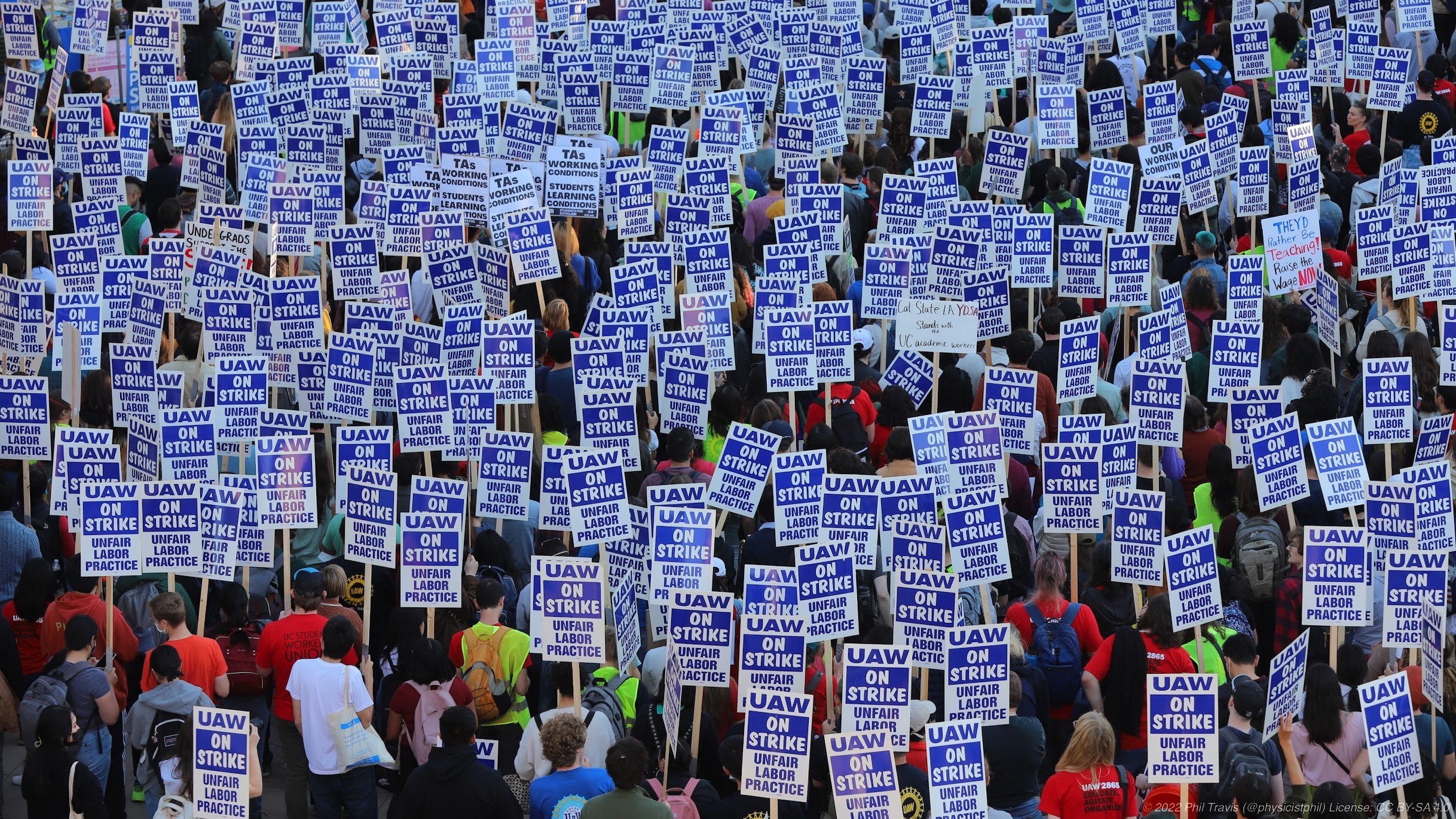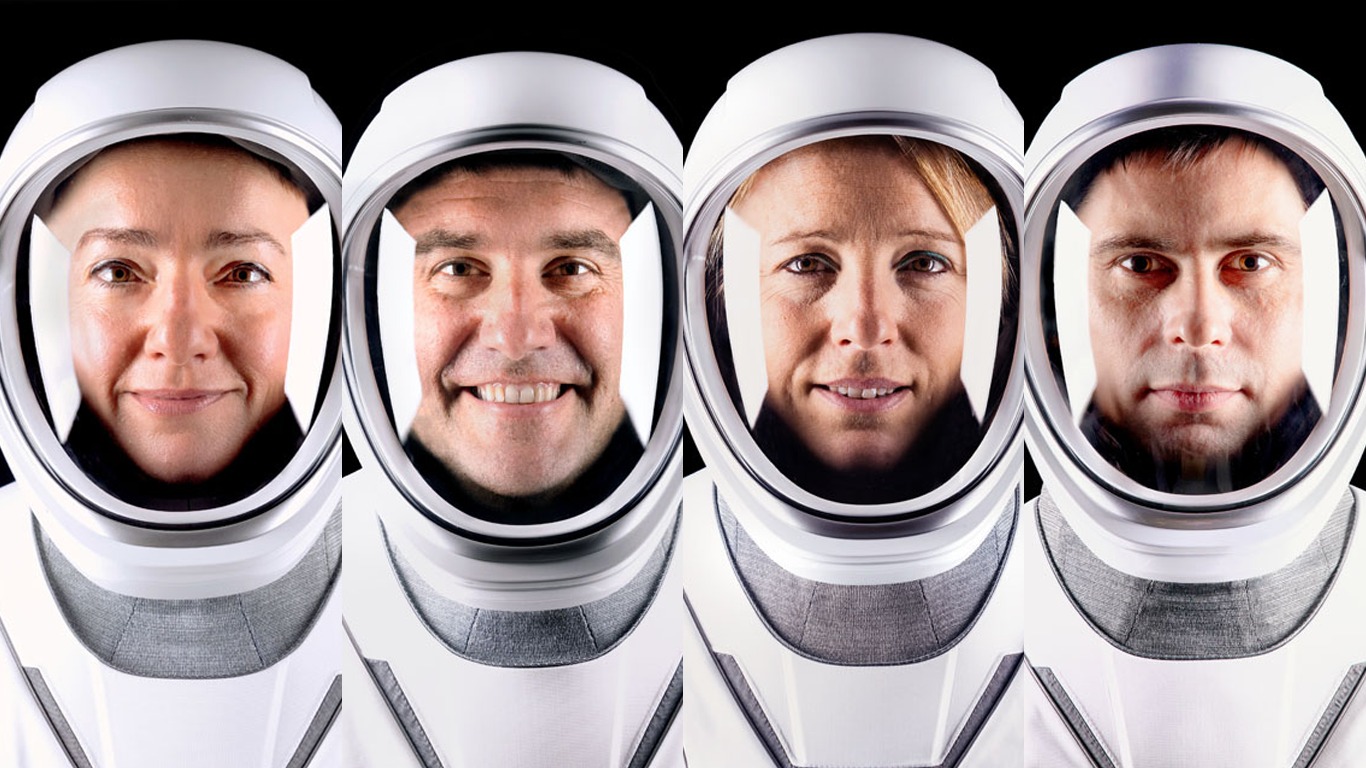University of California workers strike for a more equitable future in education (op-ed)
Instead of searching for exoplanets, I'm on strike with 48,000 colleagues.

Today marks the fourth week that University of California academic workers, including myself, have been on strike.
We are the teaching assistants who grade student work and guide undergraduates in discussions, labs and more. We are researchers who do the cutting-edge work that makes this university famous. We are even astronomers who discover the wonders of the universe often featured in Space.com and across the internet. And the University of California refuses to pay us a living wage.
48,000 academic workers at the University of California (UC), represented by the United Auto Workers union (UAW), have been engaged in a strike since Nov. 14. This strike is in response to the university's unfair bargaining practices as we try to negotiate a new contract for each of our four bargaining units: academic researchers, postdoctoral scholars, graduate student researchers, and academic student employees (teaching assistants and graders).
Related: Space has a diversity problem — and big institutions like universities can do something about it

Instead of spending my days in the office writing code to analyze astronomical data or in the classroom teaching, I've instead spent the last month out on the picket lines. For eight hours a day, workers from our union are marching and chanting on campus to make our presence known while we withhold our labor from the university.
Workers are arguing for a substantial raise to match the sky-high cost of living in many of the California cities where UC campuses are located, as well as other protections for workers including expanding parental leave, making the university more accessible and creating safeguards against workplace harassment and bullying. The strike, which is the largest academic strike to date, is meant as a show of collective power, to demonstrate the need for academic workers' labor to keep the university functioning. Many lab courses have been canceled due to our absence, and over 30,000 final grades will not be submitted this quarter — clear disruptions of university operations. Despite vocal support from community members, other unions and a number of politicians and public figures across the country, UC's latest offer to graduate students does little to support workers with high rents and even threatens to cut workplace protections.
As an astronomy graduate student at UCLA, I am fortunate to be paid more than many of my fellow graduate students, especially those in the humanities, since scientists tend to be better funded. But this fight isn't just about me. It's about making sure that higher education is equitable and accessible to all, and making science itself more sustainable for the people working within it.
Breaking space news, the latest updates on rocket launches, skywatching events and more!
Graduate students (those pursuing master's and doctoral degrees) and postdoctoral scholars (recent Ph.D. graduates) do a large amount of the teaching and research work at universities. Yet, 92% of graduate students at UC are "rent burdened," spending between 30-90% of our incomes on rent. Workers on strike have shared stories of living in their cars, commuting long distances, facing food insecurity, and other hardships endured while working through graduate school.
"This fight ... is about making sure that higher education is equitable and accessible to all, and making science itself more sustainable for the people working within it."
Although many academic workers truly love their jobs — supporting undergraduate students through their education and conducting research to unveil brand new knowledge — passion does not pay the bills. In fact, low wages often push out many talented researchers and educators who are plenty passionate, but unable to sacrifice financial stability in service of their dreams.
Similarly, the very issues that our union is pushing back against, including inaccessible classrooms and workplace harassment, also force students out of our universities and out of science. Graduate school is a time of precarious power dynamics, when a bad advisor can spoil a whole career. There have been too many stories of those in positions of power, like faculty, abusing their roles at the expense of graduate students, whether that abuse takes the form of sexual harassment, ableist discrimination, racial microaggressions or other unacceptable behavior. These issues, along with low wages, disproportionately affect marginalized groups, undermining the supposed ideals of diversity, equity and inclusion that universities claim to embody.
In the past weeks, I have watched the University of California leadership publicly brag about their commitment to accessibility for disabled students while simultaneously rejecting our contract language about access needs for disabled workers, among other hypocrisies. UC representatives have shown little respect for our union at the bargaining table; one labor relations employee even allegedly assaulted someone on the picket lines. Departments, including my own, are undermining the strike by hiring undergraduates as scab labor to grade finals.
I truly, deeply believe in the value of higher education, but how can I possibly speak highly of UC, now knowing what they really think of graduate students and our labor? When given the opportunity to pioneer what excellent public education looks like, the university system has instead taken the side of the unsustainable status quo, hoping to outlast our union's demonstrations and collective power.
Meanwhile, on the picket lines, the new generations of academics and scientists have been joyously protesting, discussing the future they hope to see. We know the value of our labor, and we know that we want future graduate students to have a better experience — one where no matter your background, disability or financial status, you, too, can succeed in graduate school if you want to.
Despite the oppressive bureaucracy we face, academic workers and graduate students in my community, plus certain faculty and other UC workers, have supported each other in a way that gives me hope for the future of higher education. And similar movements are happening in other places, too. Workers at The New School in New York are currently on strike, as are educators with the University and College Union in the U.K., while academic workers are forming unions at many more institutions across the U.S.
Our strike at UC is a clear result of long-brewing funding problems and other inequities in higher education. It is also one of the most concrete actions this decade for making education and, as a result, careers in science more equitable and possible for many people — and if universities like UC want to continue claiming they care about making higher education accessible for a diverse population, then they must support labor movements like ours.
You can support the UC academic workers strike by donating to our hardship fund, joining us on the picket lines, or signing letters in support of our movement. Learn more at https://www.fairucnow.org/support/
Follow Briley at @briles_34 on Twitter. Follow us on Twitter @Spacedotcom and on Facebook.

Briley Lewis (she/her) is a freelance science writer and Ph.D. Candidate/NSF Fellow at the University of California, Los Angeles studying Astronomy & Astrophysics. Follow her on Twitter @briles_34 or visit her website www.briley-lewis.com.


